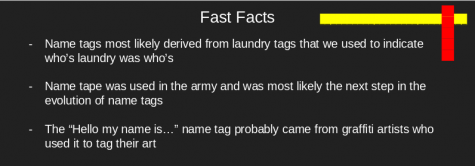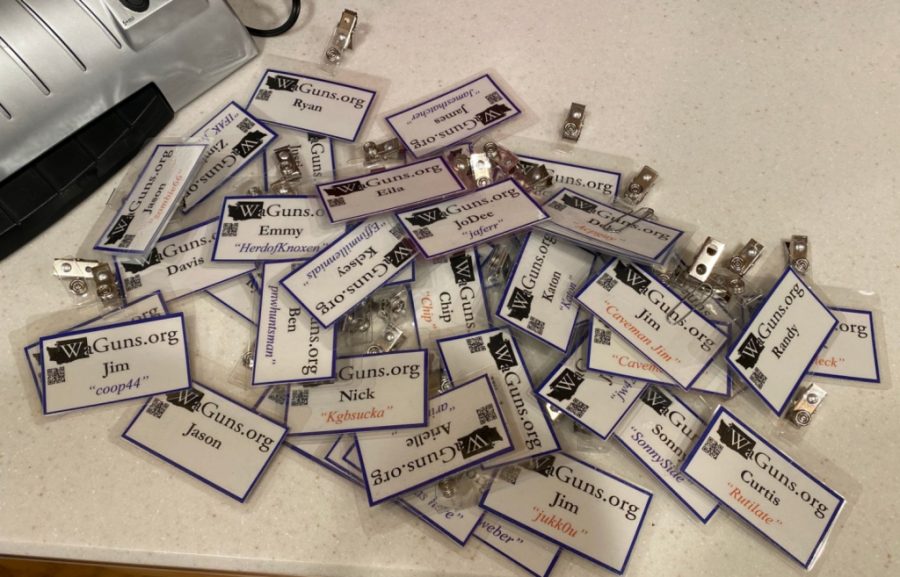No Name Tags. Thank you
Name tags. Are they really all that helpful? I decided to write this opinion article about name tags because many people really don’t like name tags, but many other people find them really useful. Since essential workers are in the spotlight due to COVID-19 and many of them have to wear name tags, I thought it would be an appropriate time to talk about them. I really wanted to see the different sides and opinions of this topic since this is one of the few topics since it’s a pretty light-hearted topic.
I think that people don’t have to wear name tags if they don’t want to in any situation and by any situation, I seriously mean ANY situation. Like if you’re on your first day of school, the teacher has a seating chart (or list) of all of their students with their names and faces. If it’s your job there really isn’t any need for the customers to know your name. Also when you have a name tag on when you’re in customer service, there is a very high possibility that when someone is angry at you or the store you work at, they will immediately look at your name tag and call you by your name. It’s just not needed.
I’m sure that you personally can think of a time where you had to wear a name tag whether it be school, work, camp, etc. I bet that you’ve noticed that even though there are name tags people can’t seem to get the names right. You may have had an experience where the other person just completely gave up on trying to say your name. If people didn’t wear name tags then it could eradicate mostly all of those interacts because if they ask you your name you would respond with the correct name and pronunciation and at that point if they get it wrong it’s just their own fault.
There are a couple of companies and businesses that have gotten rid of name tags completely and one of those places is Andaz. Andaz has made a new string of 5-star hotels that are 100% name tag-free. The vice president of this company, Sara Kearny, stated, “We’re trying to make you—the customer and also the employee— feel like you’re in more of a peer-to-peer relationship.” Their goal with this is to have less of a barrier between employee and guest.
The opposing viewpoint is that if you have to report a worker then you have to know their name to be able to report them at all also it can help deaf customers because then they can just look at the name tag if the worker doesn’t know sign language. A lot of people also think that it helps the consumer connect more personally with the employee. The counterargument to that is that a lot of people don’t even need to address the worker by their name in the first place and also when you need to report someone you can just describe either what they looked like or what time their shift was. The counterargument to the last opposing viewpoint is that there is no need to be personal with the employees because they are being paid to be there and if you try to be more personal with them you’re either wasting their time or making them uncomfortable (this doesn’t apply to all employees and it’s a mixed bag but there is a pretty good chance that they don’t want to talk to you).
After reading this readers should try to talk to as many bosses/CEOs as possible to make the number of people wearing name tags go down as much as possible. A different, possibly easier, way to solve this is just for the reader to stop wearing a name tag, and then hopefully it will catch on and become wider spread.
Your donation will support the student journalists of West High School. Your contribution will allow us to purchase Scholarship Yearbooks, newsroom equipment and cover our annual website hosting costs.




